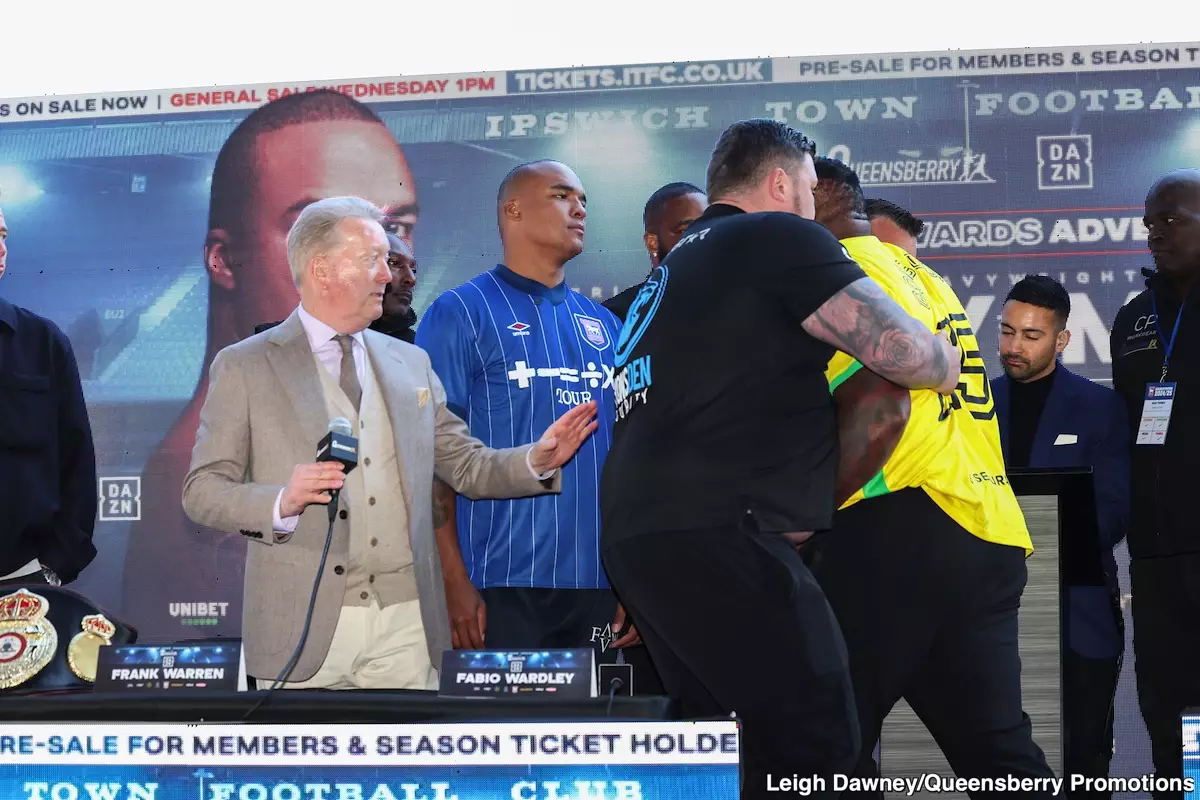Jarrell “Big Baby” Miller’s boxing career has been marred by controversy, punctuated by two significant disqualifications stemming from performance-enhancing drug (PED) failures. Yet, with his impending match against Fabio Wardley on June 7, 2024, the air of scandal looms large. Frank Warren, the promoter who has taken a considerable risk by aligning Miller with Wardley, contends that Miller has served his punishment and deserves another opportunity to compete at a meaningful level. Miller’s professional record (26-1-2, 22 KOs) reflects a fighter who once held promise, capturing the attention of boxing fans for both his physical prowess and vivid trash talk. However, the question remains—does a fighter with a recent history of drug offenses warrant another shot on such a significant platform?
Questionable Ratings and Selection
One striking aspect of Miller’s upcoming bout is his surprising ranking within the World Boxing Association (WBA). With a lackluster performance that includes two recent fights without a victory—one being a loss to Daniel Dubois and a subsequent draw with Andy Ruiz—the rationale behind Miller’s current #4 rating demands scrutiny. Critics argue that there are more deserving fighters on the rise, men who have demonstrated consistent success and integrity in their training regimens. The glaring inconsistency raises eyebrows regarding how fighters are rated, especially with a history of sanctions hanging over Miller’s head.
It’s evident that Warren sees Miller as a lucrative choice, not just for his marketability but for the seemingly winnable nature of this matchup for Wardley. The risk of Wardley, a less seasoned fighter, facing a younger and more skilled opponent could skyrocket the chances of his downfall. So, is Warren sacrificing ethics in favor of favorable match-making? The answer appears multifaceted, involving a blend of business strategy and a disregard for traditional meritocracy in the sport.
Miller: A Media Magnet or an Ethical Liability?
Miller’s re-emergence into boxing circles is undeniably enticing from a promotional perspective. His ability to stir conversations and create hype through brash self-promotion is unparalleled in contemporary boxing. However, this talent for generating controversy should come with a heavy price tag—particularly in light of his past indiscretions. By positioning Miller in such a high-profile eliminator, Warren seems to cast a shadow of moral ambiguity over the sport that fans cherish.
For boxing purists, the idea that a fighter could bounce back from such serious violations raises the question of whether the sport places greater value on entertainment than on integrity and athleticism. Beyond the financial implications of the bout, what does it say about the culture of professional boxing when fighters with questionable track records are elevated to elite status merely because they can attract attention?
Warren’s Defense: A Point of Contention
Warren’s vocal defense of Miller reflects a broader trend of normalization within sports—where athletes often find ways to maneuver around their pasts, particularly when promotional dollars are at stake. “He’s served his time under the regulations,” Warren states emphatically, aligning Miller’s situation with that of a convicted criminal reintegrating into society. Yet, an essential difference lies here: professional athletes are role models, and as such, their behaviors and choices often reverberate far beyond personal consequences. Should we accept the return of someone who has availed themselves of performance-enhancing substances as ‘clean’ just because the rules allow it?
Furthermore, Warren’s admission that he personally believes in lifetime bans for drug cheats shows a moral contradiction in his promotional decisions. While he may argue for Miller’s opportunity based on a technicality, the viewpoint that drug cheats should be rehabilitated speaks to a larger moral dilemma in sports—one that could have detrimental effects on the boxing community’s standing in the eyes of new and potential viewers.
The Future of Fabio Wardley
Amidst this brewing chaos, Wardley stands to gain significantly from facing Miller. However, his lack of experience against top-tier opponents raises concerns about his capacity to handle a fighter who is not just heavy but skilled—a combination that could spell an early end to his title aspirations. Warren’s matchmaking appears to be a calculated gamble, one that may require Wardley to prove himself in a ring against a fighter steeped in controversy.
Ultimately, the upcoming match raises wider questions about the trajectory of boxing as a sport. As conversations about integrity versus entertainment unfold, the trajectory of fighters like Wardley might find themselves caught in a delicate balance where prowess in the ring often clashes with the moral fabric of the sporting world.

